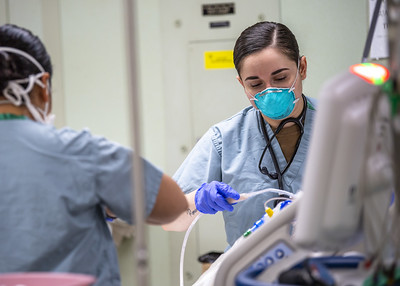The past two weeks have delivered an urgent message: the pandemic is not over.
In 48 of 50 states, the seven-day-average of new COVID-19 cases has risen. The delta variant is driving the ferocious increase in cases, becoming the dominant virus strain in a matter of weeks. In the last month, the discussion has shifted from incentives to mandates to increase vaccination rates.
The pandemic is not over.
At the same time, people are desperately trying to get back to normal. The CDC has withdrawn indoor mask mandates for fully vaccinated people. Air travel has quadrupled from slightly more than 500,000 travelers per day in July 2020 to more than 2.2M per day this week. The employment rate in June 2020 (5.9%) was slightly more than half of what it was in June 2020 (11.2%).
And yet, the pandemic is not over.
Washtenaw County vaccination rates above the pandemic average
According to the Michigan Department of Health and Human Services, Washtenaw County is approaching a 70% first-dose vaccination rate. That is the 5th-highest vaccination rate (by county) in Michigan. Despite this, Washtenaw County registered 112 cases of COVID-19 from July 8 to July 21. Of those, 33% were among people under the age of 18. As of this writing, the FDA has not approved the emergency use of any COVID-19 vaccines in children under the age of 12. That approval is likely not going to come before mid-winter 2022. 44% of cases were among adults between the ages of 23-39.
Nationally, the vaccination picture does not look quite as good as Washtenaw County’s does. According to the Centers for Disease Control and Prevention, 56.9% of vaccine-eligible US-residents have received at least one dose of a vaccine. Just 49% of vaccine-eligible US residents are fully vaccinated.
Currently, most new COVID-19 cases occur among unvaccinated people. Unfortunately, the emergence of the highly virulent delta variant means that going forward, most new cases will be among adults who have chosen not to vaccinate and children, who cannot yet receive the vaccine.
From unfortunate experience, Washtenaw County knows that travel is a likely source of migration for the virus. In January, Ann Arbor was the center of an outbreak of the B.1.1.7 variant. The variant, which emerged in the U.K., arrived here following holiday travel by a university student.
The delta variant proves the pandemic is not over
Currently, Michigan has a comparatively low positivity rate – less than 5%. This owes, in part, to our typical summer humidity, which impairs the virus’s ability to spread easily. If you look at the current case map , you’ll see this is true throughout the Great Lakes region.
But the delta variant is particularly good at spreading – even in very humid locales like Florida and Louisiana. These states currently have positivity rates of between 10% and 20%. Michigan’s low positivity rate owes more to the fact that the delta variant has not yet dug in here.
So, maybe now is not the right time to welcome the trade unions back to WCC’s campus for in-person summer training programs. Perhaps it is more appropriate to consider the potential negative impact of welcoming hundreds of people from areas with higher case counts and lower vaccination rates. Perhaps it is more prudent to consider the health and well-being of those in this area (children) who cannot yet receive the vaccine.
These events do not generate significant revenue for WCC, and they’re not worth the risk they present to the community.
Remember, the pandemic is not over.
Photo Credit: US Pacific Fleet , via Flickr











